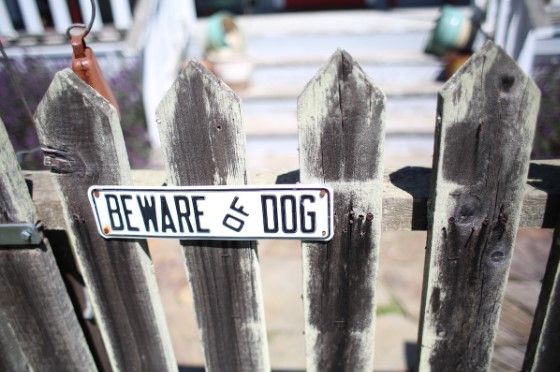How Do I Get Compensation for a Dog Bite
You may be entitled to compensation if you or a loved one has sustained injuries from a dog bite. Though an animal attack can be a traumatic experience, having people supporting you through the process can ease unnecessary stress. Working with an experienced dog bite lawyer means they can take the lead so you can focus on healing.
It also ensures you follow all the necessary steps in a timely manner, so you don’t lose out on the compensation you may be owed. Read on to learn what these steps are so you can get your medical bills covered, along with other losses:
Seek Medical Treatment
After a dog attack, there are two critical steps to take: seek medical treatment and representation. With every emergency, make sure to put your health and safety first. Once you are safely removed from the threat, have your injuries assessed by a healthcare professional. Don’t delay visiting urgent care or the emergency room or calling 911 if necessary.
Left untreated, dog bites can lead to severe or even fatal infections. It’s crucial you seek medical attention so a professional can determine the severity of the bite, as well as treat symptoms while preventing infection.
Other serious symptoms may include uncontrollable bleeding, swelling, oozing from the wound, fever, pain, and possible nerve or bone damage from a deep wound. Aside from infection and nerve or bone damage, you may be at risk of tetanus, rabies, or sepsis. Make sure you get proper care for the dog bite immediately to avoid further harm.
Document Everything
In order to seek restitution, make sure to document all details and keep copies of any relevant paperwork. Record the particulars of what happened, when, and where it happened. Include as many details as you can remember. This will help your case in proving the dog owner was liable for your injuries. Not all states have the same laws in regard to dog bites, so it’s important to document everything to help determine liability.
Keep records of all losses directly related to the dog attack. These losses can include economic losses, non-economic losses, and punitive damages. If you also suffered any property damage, medical bills, or lost wages, record these details and gather documents as evidence.
Remember, not all losses are economic. You can seek compensation if you have experienced any pain and suffering or emotional distress. Punitive damages may be rewarded if the dog owner is found to exhibit willful or malicious behavior. Keep a journal of your experiences, including photos and written accounts. A comprehensive record will be your ally alongside an experienced attorney.
Collect Evidence
In conjunction with your written account of the events, gather as much evidence corroborating these details. If there were any witnesses to the incident, collect their names and contact information. Take photos and videos from the scene of the attack. Include photos or videos of the dog as well as the location of the attack. Document your injury and any torn clothing. If there is any physical evidence at the scene, such as torn clothing or blood, take photos and keep the clothing.
Are there prior animal control reports or videos displaying aggression from the dog? Is there testimony that the dog was roaming loose? Is the fence broken, showing the dog could have escaped? Record all pertinent details.
In addition to evidence from the scene, keep copies of all medical bills and records as well as bank account statements and pay stubs for any lost wages. These documents will aid you in your case when determining how much compensation you may be entitled to.
Notify Authorities
It will help your claim, as well as help prevent future attacks if you notify Animal Control. Reporting the attack will also create an official report that can be used as evidence in your case. A simple internet search will lead you to the correct division and number for Animal Control. Or, if you are unsure, call the police.
Partner With an Attorney
As mentioned earlier, another critical step in getting help after a dog bite is hiring an attorney. The right dog bite lawyer will be well-versed in dog bite laws for your state and experienced in personal injury cases similar to yours. Their knowledge and skill will be your strongest ally when seeking fair compensation. They will know the actual value of your claim and represent your interests so you don’t settle for less than what your claim is worth. They will negotiate accordingly and help you avoid quick settlements or insurance companies trying to minimize how much you receive.
A skilled attorney will guide you through the entire process, making sure you know what to file and when so you don’t miss deadlines or necessary paperwork. They can also talk to the adjuster on your behalf and help you with your statement. An attorney will give you peace of mind as they expertly navigate your claim and help you compile a comprehensive case. They are also knowledgeable in local dog bite laws, which factor into the value of your claim. Does your state have a one-bite rule? What are their laws for contributory or comparative negligence? Did the dog bite your child, and is the owner trying to blame them for trespassing or aggravation? These laws can be complex and intimidating. Let your dog bite lawyer take the lead with expert knowledge and solid legal advice.
The Bottom Line
Shop around for an experienced personal injury lawyer familiar with local dog bite laws. Keep written records and supporting evidence of the injury, treatment, and any relevant loss.
When you are ready to file a claim, contact the expert team at Warren Allen LLP. Our firm is ready to advise and represent you so you can receive fair compensation and the best resolution possible. Contact us today, and we’ll help you go through your options.

